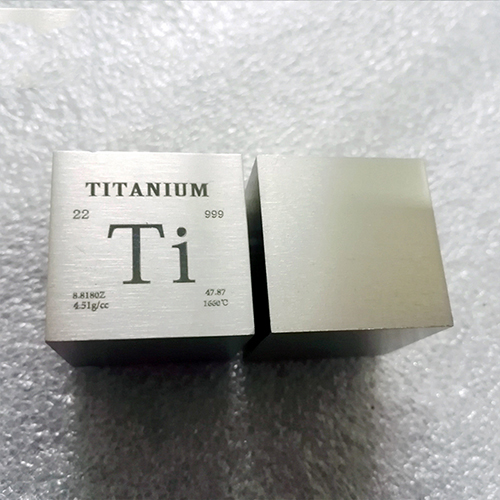Development status of high-strength and high-elasticity titanium alloys
The elastic deformation ability of metal materials is affected by the yield strength and elastic modulus, and the tensile linear elastic limit (ε0.2) is mostly less than 1%. According to different alloy grades, traditional titanium alloys have a strength between 400 and 1500mpa, an elastic modulus between 50 and 120gpa, which is much lower than steel (about 210gpa), and its elastic deformation capacity is about twice that of steel. Titanium alloy's high strength and low elastic modulus make it have excellent elastic deformation ability. As a structure and function integrated material, it has been widely used in the aerospace field.
In the 1950s, the United States used Ti-6Al-4V titanium alloy bolts on the B-52 bomber for the first time, opening the application of titanium alloy fasteners in the aerospace field. With the continuous improvement of lightweight, high-strength, and high-elasticity titanium alloys in the fasteners, the light-weight, high-strength, and high-elasticity titanium alloys have gradually replaced the traditional 30CrMoSiA steel, which has improved the safety and reliability of the equipment. The tensile strength of commonly used α+β and β titanium alloys is basically 1000MPa, such as Ti-6Al-4V, Ti-3Al-5Mo-4.5V, Ti-5Mo-5V-8Cr-3Al and Ti-15Mo-3Al- 2.7Nb-0.3Si (β21S) and so on.

Beginning in the 1970s, Ti-13V-11Cr-3Al began to be used to manufacture civil aircraft springs instead of spring steel to achieve a 70% weight reduction. Subsequently, Lockheed, Boeing and Airbus began to use beta titanium alloy materials to make spring parts such as landing gear locks, hydraulic return and aircraft controls. Representative alloys are Ti-15V-3Cr-3Al-3Sn and Ti-3Al-8V-6Cr-4Mo-4Zr (β-C), with an elastic modulus of about 104gpa and a tensile strength of 1300~1450 MPa. open.
The typical grades used in China are TB2, TB3 and TB5. Currently, α+β and β titanium alloys used for springs and fasteners generally adopt α+β two-phase structure to obtain high strength. At the same time, the modulus of elasticity (90 ~ 120gpa) is also high, resulting in low elastic properties. The use of high-strength and high-elastic materials is difficult to meet the requirements of advanced aircraft. As a special rivet material, β-type Ti-45Nb alloy has been widely used in aerospace products at home and abroad. The alloy has the advantages of low modulus of elasticity, good plasticity, and good cold working formability, but the strength, especially the yield strength, is low, and the matching of strength and elastic properties is poor.
Since the 1990s, in order to reduce the elastic modulus of medical titanium alloys, a series of metastable β-type titanium alloys with low elastic modulus have been developed, such as Ti-29Nb-13Ta-4.6Zr and Ti-35Nb-5Ta- 7Zr, etc., have obtained good elastic properties, but this titanium alloy was developed for the medical field, and its performance is excellent. Titanium alloys have low strength, and it is difficult to meet the high strength and high elasticity requirements of titanium alloys for aviation fasteners and springs. . In 2003, Toyota Central Research Institute of Japan developed a multifunctional titanium alloy (rubber metal) with excellent comprehensive performance. The typical composition is Ti-23Nb-0.7Ta-2Zr-1.2O (atomic fraction %). After 90% cold rolling after deformation, the strength can reach 1200mpa, the elastic modulus is 55gpa, and the elastic limit can reach about 2.5%. The alloy has excellent matching of high strength and high elasticity, and has constant elasticity in a wide temperature range.
The metastable β-type alloy Ti-24Nb-4Zr-8Sn (Ti-2448) developed by the Institute of Metal Materials of the Chinese Academy of Sciences also shows excellent elastic properties, with an elastic modulus as low as 42gpa and an elastic strain as high as 3.3%. After solution aging treatment, it has excellent high strength and high elasticity matching. Rubber metal and Ti-2448 are typical representatives of advanced high-strength and high-elasticity titanium alloys, indicating that titanium alloys can achieve high-strength and high-elasticity matching. Its excellent performance depends on the ingenious component design and suitable preparation process.
Email: jasontitanium@163.com
Whatsapp / Skype / Wechat / Line: + 86-15829508781



 Titanium and Titanium alloy
Titanium and Titanium alloy
